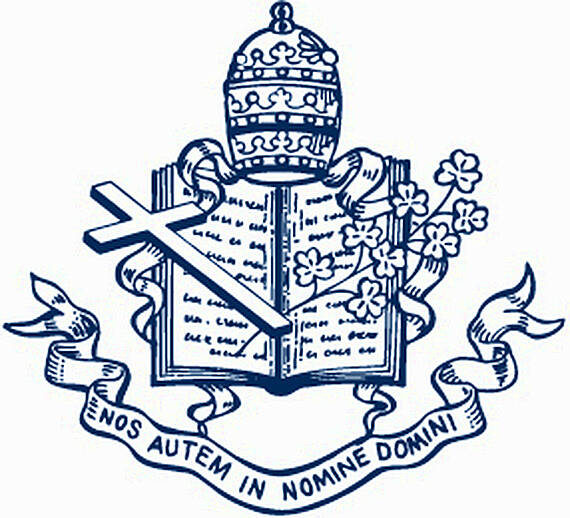Patrick Boyle, class '71
In Memoriam

-
Father Boyle was born in Durmick, Meaghera, Co. Derry, in January, 1849, and began his early studies in Philosophy and Theology at the Grand Seminaire, Cambrai. On the completion of these studies he joined the Vincentians and spent his novitiate days at St. Vincent's College, Castleknock. Following his ordination in 1872 the young priest began his labours at St. Mary's, Lanark, Scotland, where he ministered until 1876. He was then made President of St. Patrick's, Armagh, and after ten years of conscientious work he was transferred to St. Patrick's College, Maynooth, to hold the post of Spiritual Director, with the Very Rev. Father Myers, C M . In the discharge of his duties Father Boyle was ever solicitous in the care of the hundreds of ecclesiastical students who passed through the College, and many members of the clergy throughout Irish dioceses will remember him as a kindly adviser, who made a deep impression on the minds of all with whom he came in contact.
In 1889 came the promotion to the Presidency of the Irish College in Paris, and up to 1925 he guided the destinies of the Institution with tact and wisdom. In 1925 he was succeeded by the Rev. Father John Magennis, another old Castleknock man, but continued to teach in the College up to the time of his death. During the great World War Father Boyle remained at his post in Paris, and his kindly action in inviting the sisters and orphans of the Verdun Orphanage to take shelter in the College earned him the encomiums of the French Government.
As President of the Irish College, Father Boyle entertained many distinguished Church dignitaries and laymen, and amongst those with whom he came in contact was the late Cardinal Moran, Archbishop of Sydney. At the request of the Cardinal, Father Boyle, whose deep knowledge of historical events was well known, commenced a research of the exploits of the Irish Brigade, amongst the files of the National and Ministry of War Libraries in Paris, and published in Irish periodicals many facts which had hitherto been little known amongst contemporary historical writers. Many articles of Father Boyle's were also accepted by the Irish Ecclesiastical Record and the Catholic Encyclopaedia. Amongst Father Boyle's publications were an interesting book on St. Vincent de Paul and the Vincentians, and another on the Irish College, Paris, from 1578 to 1901. He also translated St. John Chrysostom on the Priesthood, and a Homily of St. Gregory of the Pastoral Office. He was of an exceedingly genial, patient and entertaining disposition, and of all the priests on the staff he was always the most popular with the students, and spared no pains in preparing them for their missionary careers. His lectures to the students always made a deep impression on the minds of all these young Levites, and were greatly treasured by them. Finally, it must be mentioned that Father Boyle, by his foresight and diplomacy, was successful in preserving the Irish College free from all foreign interest and interference at a time when other colleges were obliged to take refuge abroad.
Father Boyle always made the same effort to avoid recognition that able men make to obtain it. Extremely grave and serious in his relations with his students, he impressed them as much by his character as by the breadth and depth of his knowledge. Past students always spoke of him with deep respect. His rigid adherence to high principle even on the smallest points, his fairness to all, especially his unbending sense of justice told on all. He was a very kindly and thoughtful host. A perfect gentleman, a loyal friend and a faithful priest.
